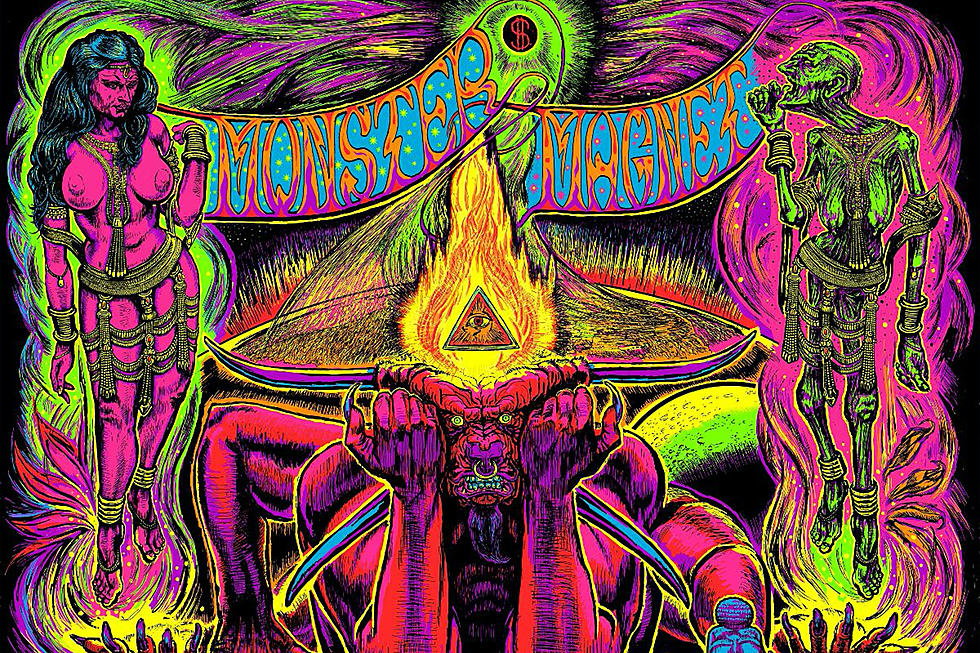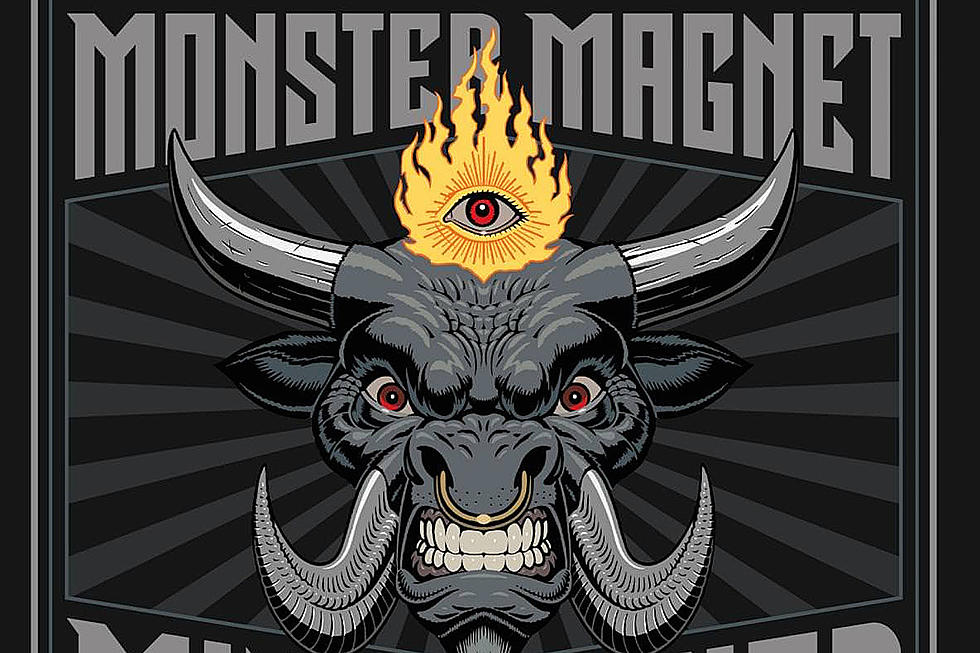
How Monster Magnet Switched Gears Yet Again With ‘Dopes to Infinity’
Stoner rock linchpins Monster Magnet launched themselves and their fans into deep, deep space on March 21, 1995 via the rocket ship Dopes to Infinity. This album has been alternately hailed as the band's magnum opus or, at the very least, one of several stunningly original musical visions sprung from the fertile mind of its mastermind, Dave Wyndorf.
From the very dawn of Monster Magnet's career in the late '80s, Wyndorf had refused to sit on his laurels. The band's eponymous EP from 1990 melded '60s garage rock, punk attitude and metallic power in equal measures, while the next year's Tab EP indulged in epic drones and psychedelic lunacy. Then, after conjuring up the new decade's scariest, wildest acid rock trip yet with '92's spectacular full-length debut, Spine of God, Wyndorf led his bandmates down the retro-hard rock highway with '93's ultra-focused major label debut Superjudge, with only his consistently far-out lyrics providing a unifying thread across his group's tireless evolution.
Even so, few observers expected Wyndorf to switch creative gears once again when the time came to record the all-important follow-up for A&M Records. Yet that's precisely what he did, challenging expectations with Dopes to Infinity's much more textured, even sumptuous, production. These changes served as both test for returning listeners expecting Superjudge's primal raw power, and an invitation for them to put their faith in Uncle Dave, entrusting the mysterious rocker to captain them beyond that final frontier, farther than man or music had ever gone before.
Not that space travel fueled by liberal drug consumption was the be-all, end-all of Dopes to Infinity. But it was the driving force behind its surprisingly groovy title track, the hypnotic "Look to Your Orb for the Warning," the muscular riffing of "King of Mars" and "I Control, I Fly" and the imaginary movie soundtracks of "Ego, the Living Planet" and "Theme from "Masterburner." Beyond these, there were numerous odes to assorted '60s sounds, including the resurrected psychedelia of "All Friends and Kingdom Come," the dark-side-of-Aquarius surf music of "Dead Christmas," the haunted acoustic jams accompanied by string arrangements of "Blow 'em Off" and, yes, the full-on musical acid trips taken by "Third Alternative" and "Vertigo."
All of these ingredients and influences converged most effectively, more or less, on Dopes to Infinity's most successful single (and 1995's most unfathomably named Top 20 Rock single), "Negasonic Teenage Warhead," which garnered enough radio airplay to expand Monster Magnet's fan base considerably, and justified the aggressive touring they were about to undertake. This began with a jaunt across the U.K. and Europe between March and April, continued with a U.S. tour supporting Corrosion of Conformity from June into August, followed by select European festival appearances and another U.S. romp supporting Korn, from October to November, before resuming for some final dates all the way out in Australia in March 1996.
But for all the band's extensive road work, reliably powerful performances, and unprecedented success at radio (the second single, "Look to Your Orb for the Warning," couldn't match "Negasonic's" performance), sales of Dopes to Infinity were still relatively sluggish by major label standards, and the tour support and radio promotion funds both dried up well before more fans could be exposed and then converted to Monster Magnet's cause. By the time Monster Magnet got back into the studio, nearly two years later, the pressure to deliver more and bigger hits would steer Wyndorf back towards a more stripped down, take-no-prisoners approach on 1998's Powertrip, and the emergence of "Space Lord" as a bona fide rock radio smash certainly paid off with the band's first Gold certification.
Unfortunately, Powertrip's well-deserved success (it, too, is an absolute scorcher of an LP) wound up unfairly relegating Dopes to Infinity to a slightly diminished standing within the incredible Monster Magnet, and renewed appreciation for the latter album's stunning musical achievements wouldn't manifest itself until the new millennium, and the group's 2011 tour, specifically dedicated to performing Dopes' songs. Thankfully, this timely reminder, along with the simple matter of surviving the test of time, has gradually cemented Dopes to Infinity's reputation as perhaps the ultimate space rock album of the '90s...and beyond.
When Rock Albums Get Raunchy
More From Ultimate Classic Rock









